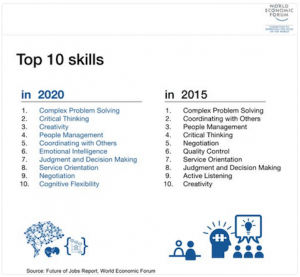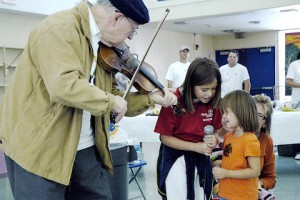This morning leafing through the pages of blogs, articles, tweets, I came across something that I needed to write about. (5 min read)
So the government is going to measure graduate worth in terms of the cling of coins. Cold hard cash. That strikes a really unsavoury chord with me. Read the Times Higher article HERE. I am hopeful that the data collected will be used with insight and reflection on a variety of circumstances and factors. It still raised a reaction in me.
Let me tell you my story. I was very fortunate to be educated at FANTASTIC universities and to earn degrees in both America and the UK – yay, happy graduate! Well… I’m a musician by training, and do you know how many jobs there are for musicians? -Like jobs that you fill in an application for and that have a pension, and a job description? Well I can count them on one hand. For example, today, when I searched the Association of British Orchestras website to look for jobs for me (a cellist) I found precisely 0. That’s ZERO. none? really? No jobs for me? Huh? Actually that’s not uncommon – have a look on the link. There are pretty much no jobs for any instrumental performer in an orchestra in the UK at the moment. (That won’t look good on a graduate earnings table.) Don’t worry, it’s not all doom and gloom, and job prospects are certainly better than they were 20 years ago when I graduated. When I finished university (on both sides of the pond) my highest qualification was in performance (M-level) and that is what musicians do and love – we make music – live, fantastic, moving, enjoyable, music. Practically speaking, that takes a lot of hard work.
So as a graduate with a Master’s degree, I had decided that I really didn’t want to play in an orchestra, but I certainly did want to perform. One could argue that my decision about orchestras closed doors for me, but as you have seen above, the job prospects for orchestral musicians aren’t great. You need to be willing to travel anywhere in the world and take what you are offered – except in music you have to ‘win’ an audition, and the competition is literally global for a single position. I still performed – I gave concerts – recitals. When a musician gives a concert they prepare by spending hundreds of hours practising. I am not exaggerating. To be a professional musician, studies have documented just how many hours are needed, and the most famous study by Ericcson et al (1993) showed that professional musicians have accrued at least 10,000 hours of practising. When I prepared for a recital I would spend 6 hours a day fitting in 4 hours of dedicated practise for several months. What did I get for it? A lot of generous applause, some flowers, maybe a bottle of wine, and if I was lucky a cheque for a couple of hundred puonds. Not ideal wages for three months work. But I raised thousands for charity at these recitals, does that count?
no.
But was I useless? as a graduate, would it reflect accurately to show that I was not in a job? that actually I had to take on a shop job to pay the rent??? I worked in a luggage shop and sold posh handbags to people.
Now, there is nothing wrong with working in retail, and in society we need all the different people in the world from cleaners to carers to doctors to teachers to children who have the job of playing and being young to the respected elderly who are the living libraries of our society. We need everyone. My point is that I was in a job that was distinctly not what I had trained for, and there is no way that a high street shop would need to or want to take on someone with two university degrees – it doesn’t make sense. At the time I had to figure it out for myself.
What did I figure out?
It isn’t in a textbook. There is no textbook. We live in a changing society and yes there are opportunities but nobody is going to hand you a form with them neatly listed. It takes hard work, thinking, initiative, and when carving your place in music
it doesn’t happen overnight.
That’s why that tweet really got to me. Measuring graduate salaries? Not so much. I would hope that it doesn’t mean the arts are not valued.
In pre-industrial revolution times, when everyone had to toil in the fields, worked hard for everything, and had very little time for other pursuits, then maybe if you were in the arts you might be seen just as icing on the cake, but today?? Today??
We live in a society that is increasingly automated. Our society is increasingly concerned with wellbeing. Our society is increasingly concerned with self-improvement. And somehow we seem to be working in education toward recognising excellence.
Music and the arts connect us. Music draws people together, performers use more higher cognitive functions, combine the physical and the mental, music requires expression, problem solving, discipline, commitment…
 Wait – I might just be listing some of the skills that the World Economic Forum have just listed as what our graduates will need – today and looking forward to 2020.
Wait – I might just be listing some of the skills that the World Economic Forum have just listed as what our graduates will need – today and looking forward to 2020.
So are the arts really not that important?
Think again.
The training that a musician gets (at least speaking for my own students), working toward a portfolio career where they know that there are opportunities, but they are not yet written. Where they know that they will have to make choices and work hard. Where they know the value of communication, collaboration, and of working with others. It is valuable even though upon graduation there are many who will make a real contribution to their communities and to the world, but upon graduation their salaries may not fit into the graph in the same way that a banker’s will.
Do they get jobs. Yes. One of my final year students got a job yesterday – she got a one-year contract to teach music lessons. Someone else created a performance company. Someone else a guitar school. Someone else a music academy. Someone else a recording company. Did I tell them what to do? No. Do they show up as high earners? No. Do they hold value in society? Yes. Do they love what they do? Yes.Do they stay in the area they trained for? Yes.
Is it about the price tag? No.
I don’t have an easy answer, but I know that putting simple numbers in boxes won’t show the value of the arts.


I am a professional musician–organist, pianist–and I feel extremely fortunate that I have been able to earn a living in music for virtually my entire adult life. It has not been easy and there have been times I have been forced to work seven days a week. At age 76 I am still playing and hope to for longer. There is no other profession I ever wished to follow. I knew from the time I was a small child that I wanted to be in music. For most, except the most recognized, we have to be willing to participate in a variety of musical endeavors. One of the most exciting days of my life was when my daughter told me she wanted to go into music professionally — she is a wonderful musician and the pride of my life. I am truly blest to have been able to follow my love and my dream.
(I know this is not exactly what you were discussing, Laura, but for some of us this is what makes us happy and fulfilled.)
Yes. Love this: “It isn’t in a textbook. There is no textbook. We live in a changing society and yes there are opportunities but nobody is going to hand you a form with them neatly listed. It takes hard work, thinking, initiative, and when carving your place in music it doesn’t happen overnight.”
Biggest fallacy of the linearity of # of years of education —> income potential is that somehow after you graduate, you become something. We are always becoming, by what we learn, how we show up, the quality of our attention. The gift you give your students is the experience of creating something. Living through the risks, the decisions, the consequences, seeing others do courageous things and watching how they play out. This, in my experience, more than any diploma ceremony, is what results in the confidence to keep creating. And in changing times, society needs more of us to tap into our ongoing ability to create. Right now I’m having a blast learning from an organic farmer who graduated from film school. I see how the field is like a decades-long film project. How the meticulous attention to detail required of any art also applies to planting rows, attending to the seedlings, laying beautifully straight irrigation lines, and then passing on that love to people in the form of gorgeous food. We can make a difference in ways we have not yet been able to imagine. What’s important now may not be the same as what’s important decades from now when we are called to do our next work. I never imagined I would be giddy with joy from working in a field. But I am. And I see that just as food is food for people, so is the mindset of an artist, applied to any field.